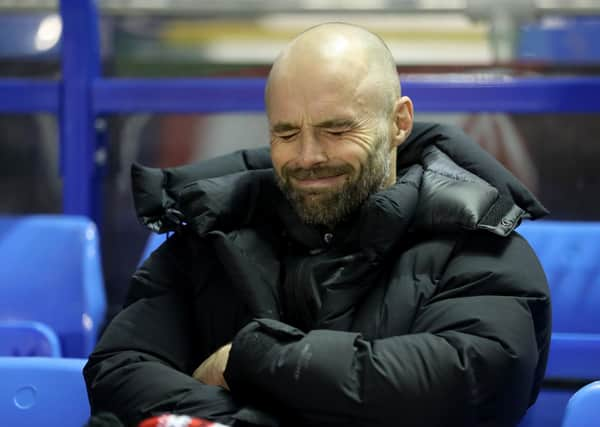Up with the larks, Rotherham United’s Paul Warne and the ‘sleep geek’


Should you speak about it to Rotherham United’s players, the feedback is rather more positive.
It is all thanks to the input of former Millers academy player James Wilson, who has provided the club with a secret weapon in their quest for promotion back to the second-tier in 2019-20. Sleep.
The big question is this: Are you a lark or are you an owl?
Advertisement
Hide AdAdvertisement
Hide AdIt is the Land of Nod as opposed to the Championship that Wilson – nicknamed ‘The Sleep Geek’ – concerns himself with, monitoring the players’ sleeping patterns and providing individual ‘body maps’ to help them get the requisite amount of sleep they require to recover and perform to their optimal best.
As someone who is obsessive about the importance of recovery, nutrition and health and well-being for professional sports people – and has always practiced what he has preached in that regard – Millers chief Paul Warne quickly provided Wilson with a receptive ear.
More crucially, so have his players.
Warne said: “James came to speak to the staff, the players and the players’ partners, especially the ones with kids, to try to help everyone sleep better.
“He is a Rotherham lad. He did testing with different pillows and different mattresses and how we all slept. He changed my sleeping position.
Advertisement
Hide AdAdvertisement
Hide Ad“I used to sleep on my front all the time and had loads of lower-back pain. Now I sleep on my side and I don’t have lower-back pain.
“I am obsessed with sleep. I could sleep virtually all day if you had let me. I like sleep. I like it as a recovery thing for the brain and the body.
“I just think that if the lads are well rested, they make better decisions in games.”
Changing mattresses and even getting players to bring ornaments or keepsakes from home to build an environment that works for them when they sleep on away trips are among two things that Wilson has implemented for those who struggle with sleep.
Advertisement
Hide AdAdvertisement
Hide AdSwitching the order of players who room together in hotels before away matches is another.
“This sounds so simple that I am embarrassed we didn’t think about it ourselves, but he got the ‘larks’ and the ‘owls’, as he called them, together,” added Warne.
“He got the larks – the ones who like to be up early – sharing rooms on away trips and put the owls – the ones who like to stay up late – in the same room.
“If you share a room with someone who stays up until midnight and gets up at 9am when you like going to bed at 10.30pm and being up at 7.30am, it is not going to work so well. We got all the rooms changed. He has helped the players get more sleep.
Advertisement
Hide AdAdvertisement
Hide Ad“He has also helped some of the lads who have been through bad times because their sleeping patterns had gone off the wall.
“I don’t know if it has helped in performance because you cannot measure it, but we are trying to help the lads in as many different ways as we can.”
Meticulous in his game preparation he may be, but Warne is also wise to the notion that relaxation is sometimes the best form of preparation and that is where sleep plays a part.
Back in the day, that concept was not lost on perhaps the most perceptive manager of them all, the late, great Brian Clough.
Advertisement
Hide AdAdvertisement
Hide AdClough regularly ordered his players to have a few late night beverages on the eve of big games at home and abroad for his Nottingham Forest side in their heyday in the late Seventies.
It was all done for a reason – to get them settled and able to sleep rather than lay restlessly awake in their hotel bed until the early hours.
On his own methods, Warne continued: “If there is a Tuesday game, loads of teams have their players in on a Sunday to train whereas I prefer my team to stay at home because they will get more sleep.
“On a night game, because you play under the floodlights and it affects your body-clock and your body thinks it is still day-time, players leave the ground still full of adrenaline and they cannot get to sleep until 2am or 3am in the morning.
Advertisement
Hide AdAdvertisement
Hide Ad“If I have the lads in at training at 10am the next day, some of them have to get up at 8am and they are getting hardly any sleep. It is counter-productive.
“Most of the lads I have spoken to think they have benefited from James. It is a bit placebo. If they think they have, they probably have.
“Even the ones it does not affect, it makes them realise that we will try to do everything we can to help them.”